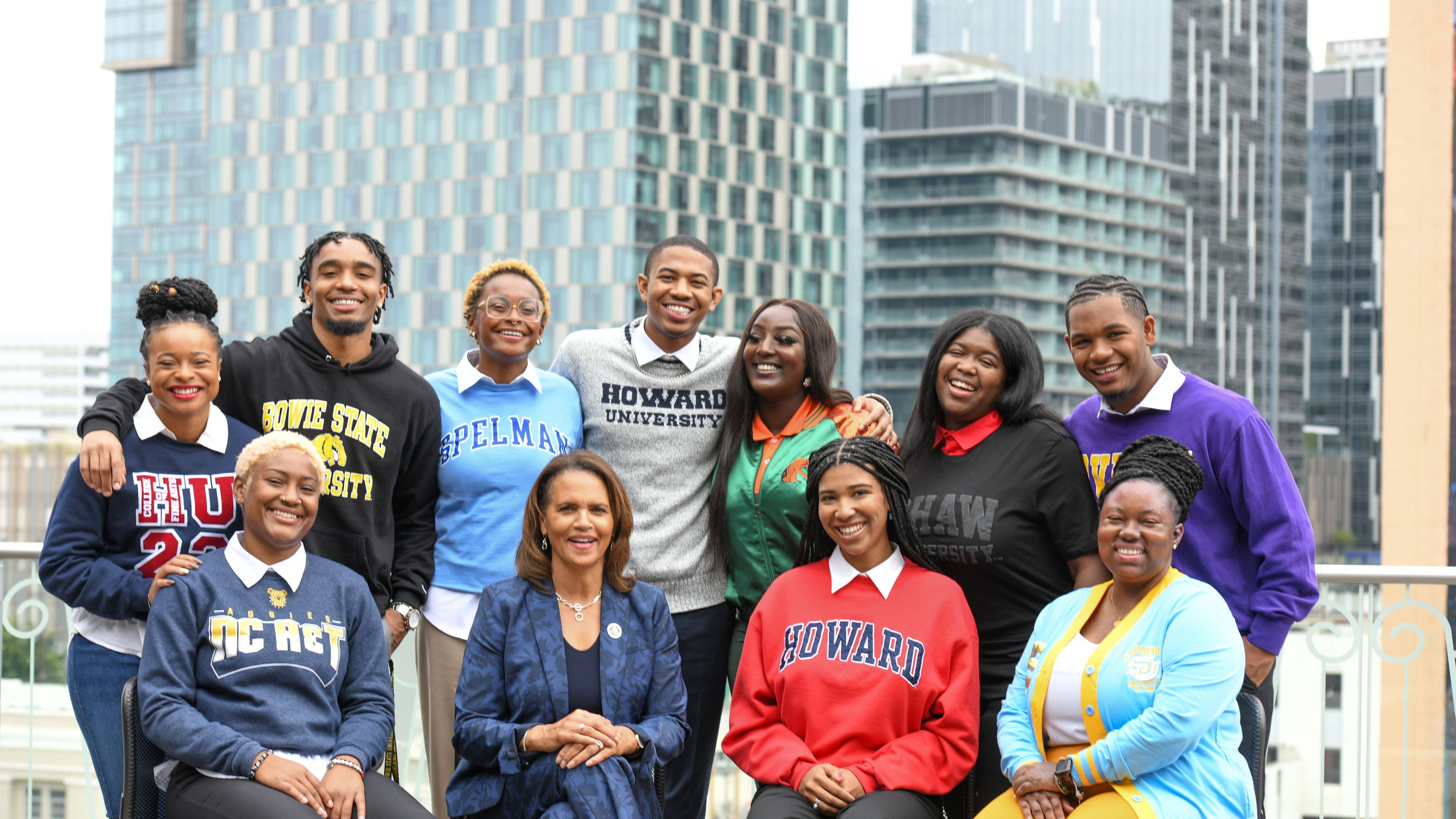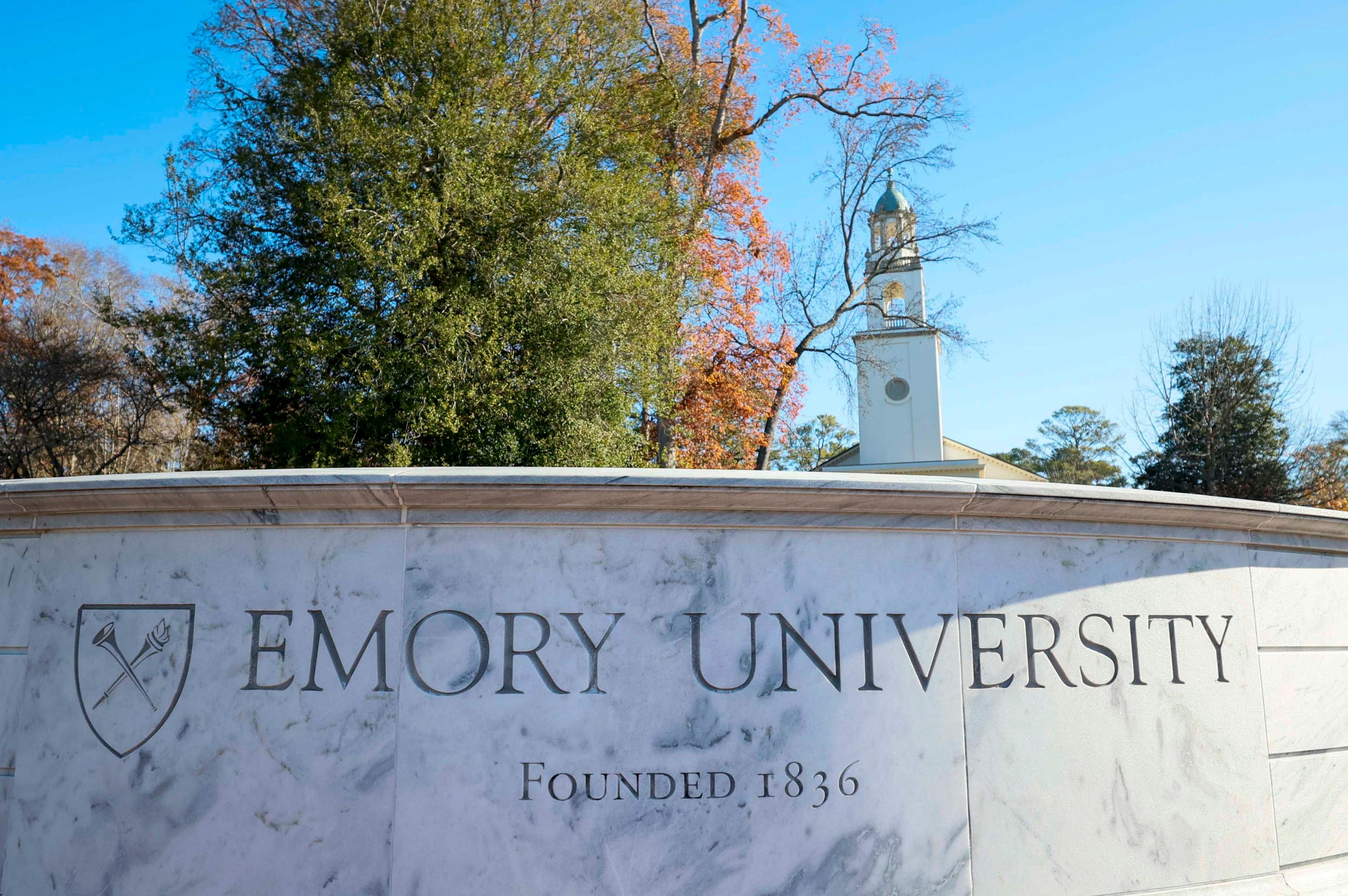Lights. Camera. Creating more opportunities in Hollywood for HBCU students

Stacy Milner remembers having to explain the acronym to her peers.
The longtime entertainment industry professional was discussing helping students at historically Black colleges and universities (HBCUs) break into her field about eight years ago. However, several of Milner’s colleagues weren’t familiar with the term “HBCU.”
Milner wasn’t surprised. After all, she broke into the industry a few decades ago as an executive assistant to the chairmen of NBC and Paramount. She saw how a lack of diversity on the C-suite level in Hollywood trickled down to other roles within the business, from acting and directing to working in public relations. She saw “Band-Aid programs” offering temporary diversity, equity and inclusion fixes.
“I knew myself that there had to be a pipeline, there had to be a strategic and intentional approach to solving the issue,” Milner said.
Stop if you’ve heard this one before: Hollywood has a diversity problem.
Nearly a decade removed from the #OscarsSoWhite controversy, the lack of inclusion sparking that online outrage still persists. In 2020, a collaborative study between the NAACP and UCLA found at the time that just 3.9% of major studio heads were Black. That math doesn’t math when you take into consideration that Black Americans lead the nation in media consumption, according to Nielsen.
Milner decided to do something about the issue. She founded the Entertainment Industry College Outreach Program (EICOP), which attempts to help Black students — particularly from HBCUs — break into the entertainment industry.
So far, Milner said the program is responsible for placing over 500 HBCU students in paid internships, and half of those students were converted into full-time employees. Industry partners include Sony, animation giant Pixar and ABC. It is all a part of Milner’s plan to give students not attending America’s storied film programs a fair shake in positions that make decisions. The program is expanding into Atlanta this summer, and Milner hopes to make it year-round. A summit kickoff sponsored and hosted by Tyler Perry Studios began Tuesday and concludes Thursday. The networking event serves as a chance for members of the 2024 cohort, industry partners and others to connect.
“Can we affect the C-suite? Absolutely, we can,” she said. “We just need to allow this talent group to be in the pipeline, and it takes committed partners to make that happen.”
Addressing the disconnect
The idea came to Milner during a tour for her book, “Leveraging Up! The Key to Launching Your Entertainment Career.” She visited predominantly white institutions, minority serving institutions and HBCUs. It was her time spent at the latter, talking to students that got her thinking.
“I said, here’s the disconnect. They don’t know. They don’t have people coming back to their institutions and pulling them out and bringing them into an industry,” she said.
Milner reached out to her agency’s client list, getting heat checks on which companies wanted to take part in putting actions where their words were in the conversation about increased diversity. Those who were joined Milner visiting college campuses in 2010, talking to interested students. Two years later, the Obama administration caught wind of her work, and wanted to find more ways to bring resources to HBCUs.
Today, EICOP’s HBCU in Los Angeles and HBCU in New York offer 10-week summer internships studios, networks and talent agencies to students. In addition to their internships, students connect with working professionals during a weekly speaker series, produce a short film and find fellowship with one another.
In 2023, over 2,000 applicants applied for the program, and 125 were placed across New York and L.A. The selection committee looks at qualifications such as campus involvement, leadership and volunteer work. Once finalists are chosen, their resumes are sent out to the 25-plus industry partners. Milner says both Major League Baseball and iconic fashion brand Chanel are interested in future partnerships.
Ssuuna Mckitty is a rising junior at Morehouse College studying business administration with dreams of being an actor. The Chicago native got into film after a broken leg in high school ended a promising football career. When he got to Atlanta, he jumped into acting in school theater productions. He went to Atlanta Film Festival events. As a freshman, Mckitty funded and wrote a short film about the mental health toll microaggressions take on Black men.
Though he heard the program in Los Angeles didn’t typically accept underclassmen, Mckitty landed a gig with Lionsgate working on marketing and creative content. This summer, he’ll be heading back to L.A. to intern with Paramount. The macro-level impact of the program isn’t lost on him. ”Being a person of color, you’re born a couple steps behind, but HBCU in L.A. puts you a couple steps ahead,” he said.
Mckitty recalled meeting with the cast of CW’s “All American,” and connecting with and getting screenwriting feedback from a BET producer as interactions that have given him more confidence. He also credits the little things Milner and her team impart upon the cohorts. “In terms of every single small nuanced thing: how you show up in the workplace, in terms of how you send an email, how you should approach people following up when you network, all these small soft skills that we learned in the program definitely helped me,” he said.
‘Mama Stacy’
EICOP is also helping create opportunities for homegrown talent. Valerie Lambo just graduated from Georgia State University and is set to take part in her third HBCU in L.A. cohort this summer, after being included in the 2022 and 2023 groups. Lambo wrapped interviews for the 2024 session and is awaiting her placement call. She remembers trying to find her place in entertainment, meeting with metro Atlanta professionals, and developing a love for the world of public relations. She tried to find programs at home, and was striking out.
She researched and found EICOP, but was worried that not being an HBCU student would take her out of the running for an opportunity. That was until Lambo met the woman whom she and other students lovingly refer to as “Mama Stacy.”
“She was like, ‘Honey, you’re Black, you’re with us, you’re in the community,” Lambo said. “As long as you’re a Black student who wants to make it in this industry, there’s a space for you.”
Lambo went to work with the marketing and public relations team at Disney in her first year. The company asked her to stay on for two more semesters. Of all her memorable interactions, getting a chance to connect with Hoorae Media, the company founded by actor, filmmaker and producer Issa Rae, speaks to how taking part in the program’s weekly speaker series is helping her.
“That is a game changer because you really don’t learn the language of the industry while you’re in school. A lot of it’s just learning by experience, learning from those professional development sessions,” she said.
The prospect of EICOP expanding into her hometown with HBCU in ATL excites Lambo, a Decatur native. The move is a no-brainer for Milner, who says compared to L.A. and New York, Atlanta’s industry is more production focused. She’s also confident that there is enough interest from students and companies to realize her goal of making HBCU in ATL active throughout the year.
“So that’s my approach but it’s also to ensure that when productions and things come to the state and to the city, we have talent that is being homegrown that’s ready to go to work,” she said.
That her program’s alums are finding success or that her vision is being realized are what motivates Milner. It’s a great start, but it’s a first step on a journey. Her challenge to the industry still stands.
“It’s just really industry understanding that diversity isn’t just something that you just decide to do. You have to make an investment in it for the long haul,” she said. “It didn’t happen overnight, so we’re not going to get out of it overnight.”



